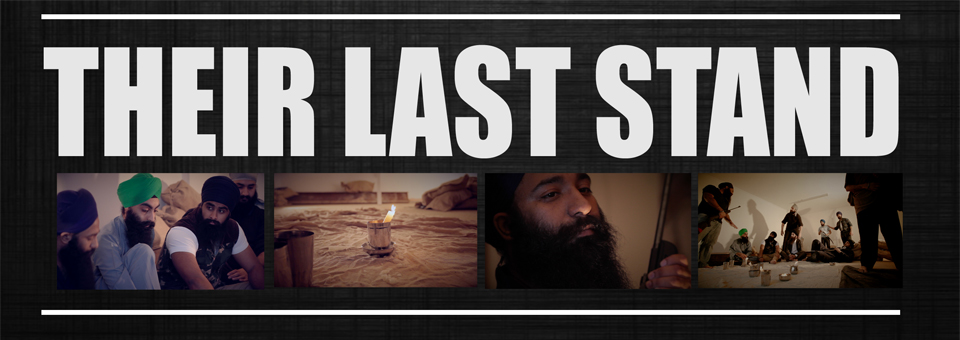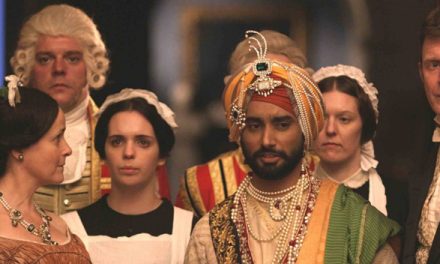There are moments in history when each of us is called upon to declare where we stand. The events of 1984 provided that moment for me. The chance arose for me and many others like me to enter in to meaningful participation in public affairs. With a young mind, I didn’t have the proper anticipation and understanding that I do now, but still we aspired to see what life is and we did that without fear and with the desire of being able to lead a dignified life.
That moment brought forth to me the importance of standing up against the dry kindling of repression, deprivation, exclusion and abuse that we faced just for being Sikh and young in a so-called free society and state. When we tried to correct those actions, the governing class stared blindly back at us. At that moment we looked to the adopted and accepted universal declaration of human rights which guarantees a life led with dignity, free from fear and giving the right to express your dissent. As a student 30 years ago, these things at first seemed alien and strange, but as we moved to create a path for our dissent and disapproval, we were sure that new terms and their relevance would become second nature.
Throughout my entire youth and much of my middle-age years, I went through the process of dissent and rebellion. I came across various ideologies and met people in prison who too were rebels, each with their own cause to pursue. I met Americans mostly black nationalists who were carrying forward the legacy of Malcolm X, but some white Americans too who were disenchanted with the way they being governed. These people were facing long prison terms, but most of them were decent human beings who hoped for making better their lot, no matter for what they were accused or convicted of. I met Cuban nationalists – pro-Castro and anti-Castro with divergent view points, but a zeal to bring forth a change in the system and in policies prevailing at that time.
This was before the unravelling of the Soviet empire and the crumbling of the Berlin wall. Idealists who shaped that time included Nelson Mandela and the departed Irish nationalist Michael Collins. Mandela was still in prison and had been designated a terrorist in the eyes of the Thatcherites and other pro-Apartheid people. Since that time I have seen how the World has changed, or rather was forced to change: Mandela became a worldwide hero and the policy pursued by Collins became the basis for bringing peace in Ireland. The whole World went through a gradual change. Now again, we are lucky to be watching, albeit with concern, the unfolding in the Arab world and the demise of Gaddaffi, Mubarak and their like.
I am sharing this because much has undergone a change in the World, but we as Sikhs are still elusive and simmering as we have the misfortune of being led by those very people who themselves raise the cause of deprivation only to stand aside and then let young minds struggle without a thought-out vision. We have undergone countless sufferings and a temporal demise whilst Master Tara Singh and the Badals of today are awarded the titles of Panth Rattan (meaning the heroes). Collins and Mandela are missing amongst the Sikhs as are philosophers like Vaclav Havel, the hero of the Velvet Revolution. The youth of Punjab is being led to believe that finding a decent living and attaining a good job are the only concerns in life; there is no word about humanity or struggle or the importance of nurturing a human mind. I recall a saying by a prominent film director, Prakash Jha of Bihar who said, ‘we are reaping what we sow, leading by greed without any compassion and allowing no room for change so we can know the real meaning of revolution; our concerns are corruption and other trivial issues which keep us away from the unfinished business of really getting independence from Colonial rule.’
Sadly, we remain unaware of the numerous sufferings of our people – like Rani Jindan, the last queen of Sikh rule and our last king Maharaja Duleep Singh who was taken away from us and his grieving mother at the tender age of nine and forced to change his religion. The British knew that we as Sikhs never accept disrespect and humiliation provided we have a strong mind to lead us. That lead was taken away from us. Many tried to regain that role but were outplayed by the governing class and our dreams remain still elusive. Now the scenario has changed all around us, we need to adjust accordingly but we must retain a sense of our lost glory and pride by being aware of our rich history. Young minds must not just become textbook experts but Sikhs with pride and dignity. For this, our education at home and in our surroundings needs to grow.
We once had many Collins and Nelsons, but they never got the attention and respect they deserved and were made to be forgotten and were thrown away. Today is the moment where we need to renew our minds, our leadership and where we stand.





